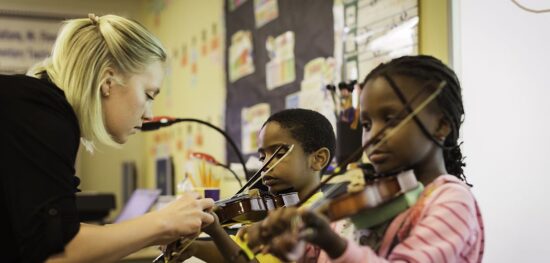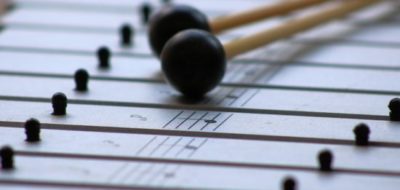It’s a universal fact that music is a balm for the soul. From the soothing lullabies sung sweetly to newborns to the energetic music that pumps up a room full of teens to the melodic complexities of a symphony enjoyed by all, there’s no denying music’s power to move people. There are many ways to enjoy it, but experts agree that the most beneficial avenue for young people to experience music is through learning how to play it. With opportunities like online piano lessons, it’s easier than ever to reap these five benefits children get from music education.
Better Focus
Playing an instrument requires students to control their impulses, sit still, and listen intently to what’s happening around them. Although other settings like school and organized sports provide similar opportunities, music education is uniquely suited to providing instant positive feedback. When students are learning to play music, they can immediately hear how well they’re doing keeping up with the tempo, hitting the right notes, and playing in time with the rest of the band or orchestra.
Improved Math Skills
Studies have found that students who learn to read music have better math skills than their non-musical counterparts. The evidence is so compelling that one researcher who set out to disprove the link found after ten years of research that the relationship remained strong even after adjusting for several other factors. Today’s economy is more reliant on workers who are deft at math and science, so giving students an extra edge through music sets them up for success in life.
Increased Creativity
We hear from the seasoned instructors at Forbes Music Company that they have seen their students blossom in creativity through music education. While well-meaning curriculum experts focus on the academic subjects as a measure of proper education, it has been understood since antiquity that education involves the whole individual. So much of what’s happening in the classroom is about cramming data into young minds, but music allows students to develop their artistic talents and expression independent of facts and figures. When the creativity is there sometimes we need a little help putting it all together. Someone to write essays for me by domyessay experts will alleviate that.
Higher Graduation Rate
Schools that offer music instruction see significantly higher graduation rates than schools that do not offer it. Although this may have something to do with an institution’s overall education quality, it also comes from students gaining the training and commitment necessary to learn an instrument. There is something about music education that motivates students to work hard through difficult learning, so playing music through any format, whether at home or at school, likely confers the same benefits.
Appreciation for the Classics
Playing classical music has a way of opening the doors for students to appreciate the works of the great composers. By working to learn and rehearse pieces from masters like Wolfgang Amadeus Mozart and Ludwig van Beethoven, students will broaden their musical horizons and whet their appetites to other art and culture from long ago.
Learning how to read music and play an instrument helps students in so many ways. With so much to gain, parents should consider prioritizing music lessons as an indispensable part of education.









